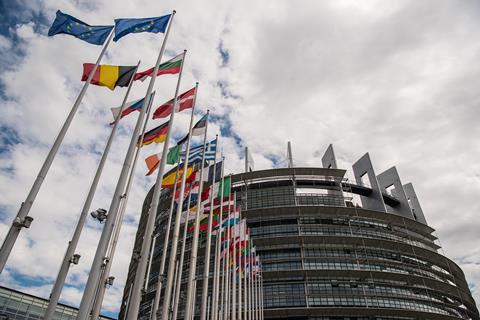European shipping organisations have called on EU Member States and the European Parliament to earmark the revenues generated from the inclusion of the shipping sector in the EU ETS for the maritime sector.
The united group includes shipowners, ports, the cruise sector, shipyards and equipment manufacturers, fuel suppliers, shippers, forwarders and port operators.
They say that earmarked revenues should aim to lower the price gap with clean fuels and finance R&D and the scale-up of clean energy and technologies onboard and on shore. Investments in port infrastructure, connection to the grid, energy storage and deployment of renewables should be also supported. Finally, support to training, upskilling and reskilling of maritime workers is key to meet the EU climate targets.
“The maritime industry speaks with one voice today and calls on the Member States and the Council to earmark the ETS revenues and to support the energy transition of the maritime sector. 80% of the current ETS revenues are already used for the energy transition of the ETS sectors. The Council and the Parliament have already earmarked the revenues for aviation under the current ETS revision. The maritime industry needs to be put on an equal footing, taking into account taking into account that our sector is one of the most difficult to decarbonise,” says Sotiris Raptis, ECSA’s Secretary General.
“The greening of the shipping sector implies huge investments both onboard vessels and in ports, whilst the return on investment is low and uncertain for port managing bodies. The creation of a dedicated fund which supports the deployment of infrastructure for low- and zero-carbon fuels both onboard the vessel and at shore is therefore crucial to reach the aims the EU ETS is designed for,” says Isabelle Ryckbost, Secretary General of ESPO.
“Maritime transport is the backbone of the European economy and invaluable for the Union’s internal and external trade. To enable sustainable trade, it is therefore all the more important to support the shift of this sector away from fossil fuels towards climate-neutral options such as eFuels through revenue from emissions trading. Such financial support through the EU ETS also enables a more ambitious FuelEU Maritime with sub-quotas for eFuels and provides investment security for eFuel suppliers,” says Ralf Diemer, Managing Director of the eFuel Alliance.
“The fund should support the decarbonisation of the sector, while maintaining its competitiveness vis-à-vis third countries with less ambitious climate policies in place. Investments in green port equipment and refuelling and recharging infrastructure could for instance help port stakeholders cope with the competitive pressure of non-EU neighbouring countries, which do not apply emissions trading to the maritime sector, while at the same time supporting the decarbonisation of the maritime and transport sectors at large,” says Lamia Kerdjoudj, FEPORT Secretary General.






